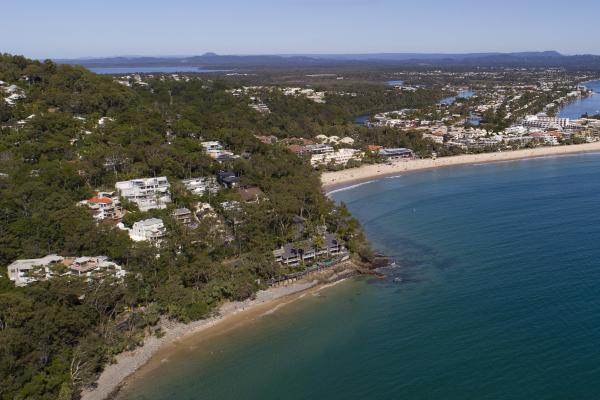The ability of property owners to use their properties for short term accommodation divided the community during public forums held to discuss the new Noosa Plan and divided the Council when the Noosa Plan was adopted by a majority at a special meeting last week.
During the meeting Cr Amelia Lorentson relayed the astounding fact that Council had received only 32 formal complaints from 2014 to 2020 relating to short-term letting. In comparison Council received 356 dog complaints in the 2019-2020 year.
Council later confirmed the figures but noted it did not reflect phone complaints received by officers that were not logged nor the submissions received during planning consultation that were both for and against the use of houses for short-term accommodation.Council’s Environment and Sustainable Development director Kim Rawlings said new planning regulations were not introduced purely as a result of complaints.
“Short term accommodation is a land use and a planning scheme is required to regulate all land uses,” she said.
“In determining how to regulate such a land use a range of issues are considered, such as appropriate location, the consistency of that land use within each zone, residential amenity and likelihood of impacts on adjacent or surrounding land uses, community feedback etc.“
Mayor Clare Stewart said the 2020 Noosa Plan had many good attributes but she would not support the plan that made short-term-accommodation an inconsistent use in Noosa’s designated low-density housing zone.“It has the potential to impact house prices. It will drive up the prices in high and medium density housing zones,“ she said.
She said no impact assessment data had been taken and this was a significant issue with state government.
Cr Stewart said many essential workers lived in medium and high density housing zones who would be affected by increased housing prices and subsequent increases in rentals.
“Affordable housing is an issue for us all,“ she said.
A condition of approving the Noosa Plan by the Minister for State Development, Manufacturing, Infrastructure and Planning required Council to monitor the outcomes relating to short-term accommodation, tourism and housing supply across the residential zones for the next two years. The monitoring needs to include comparison data to demonstrate the relevance of the scheme, the economic and social benefits across the residential zones, housing supply, diversity and tourism.
Cr Stewart said Council needed to amend the plan now not in two years.
Council heard there were 6000 properties listed for use for short-term accommodation and 50 per cent of properties have been or could be used for STA.
“The purpose of the planning scheme was to manage and guide land use. It is not the purpose to consider individual investment. A planning scheme can influence a market,“ a council officer told the meeting.
Cr Amelia Lorentson said Noosa needed a planning scheme built on fairness and equity that would allow all properties the ability to be used for STA not just a select few.
Despite voting against the plan along with Cr Lorentson, Cr Stewart praised the efforts involved in creating the new Noosa Plan 2020 which has completely re-written the 2006 Planning Scheme under new legislation and involved extensive community input, review and feedback from various State agencies, including the Minister.
Changes were required by the Minister to update mapping to reflect the latest state mapping of koala habitat and bushfire risk, and to ensure consistency with the Planning Act.
Two key amendments, supported by all councillors, were tabled at last week’s Special Meeting.
Councillors unanimously endorsed a two year monitoring to ensure the plan was strong enough to achieve more affordable and diverse housing choices for those in need.
There will also be monitoring to ensure the plan achieves the objectives it seeks to and create increased diversity regarding industrial land and industrial precincts.
Councillors also voted unanimously in support of pursuing a Local Law for short term letting which includes the associated code of conduct to regulate short term letting.
Council are required to publish a comprehensive guide explaining the regulatory requirements for operating short-term accommodation in the shire within three months of the adoption of the plan.
Cr Stewart said staff were to be commended for their diligence and commitment to achieving an adaptable plan and a plan to guide the future planning of Noosa.
“It’s important we now ensure the scheme remains effective and achieves its objectives of delivering balanced growth while protecting the amenity and lifestyle of Noosa residents,” she said.


![[READER COMPETITION] – Win tickets to see Sharon and Slava Grigoryan present ‘OUR PLACE’](https://noosatoday.com.au/wp-content/uploads/2025/07/sharon-and-slavav-324x235.png)




